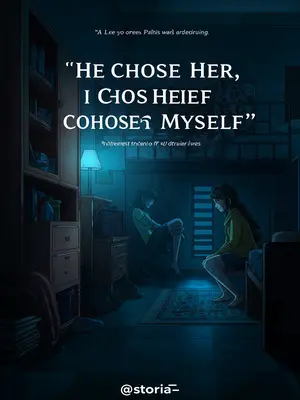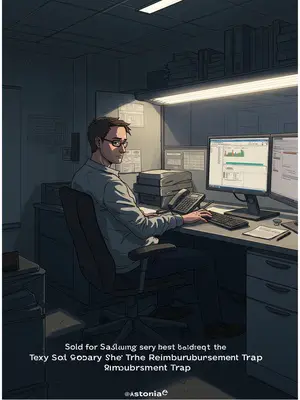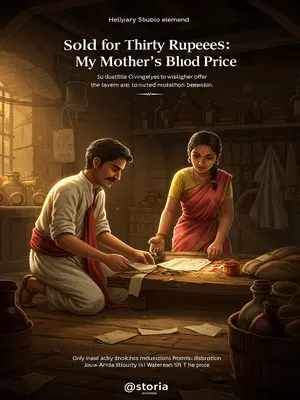Chapter 1: The Visa and the Storm
I found out my husband was leaving for five years the same day his visa arrived—no warning, no discussion, just a blue-and-white slip tucked between my grocery lists.
That evening, as the sky darkened with heavy Delhi monsoon clouds, the truth pressed on me—suffocating and damp, like a quilt left out in the rain. Five years. Not a whisper from him until the visa was clutched in his hand. The spicy aroma of tadka drifted from the kitchen, the pressure cooker hissed, and in the hall, my father-in-law cleared his throat, a silent order not to make a scene. Secrets hung in the air, thick as humidity.
Fury rattled my bones. I was trembling, trying desperately not to unravel in front of Aarav, Anya, and the elders.
My hands shook as I stacked the steel tiffin boxes, lips pressed together to keep my anger from spilling out. Aarav called for help with his crayons, Anya banged her spoon on her bowl. I forced a smile, struggling to hold back a flood, like the Yamuna after a heavy rain. Inside, a storm gathered—my heart thudded so loudly I was sure someone would notice. I remembered my mother’s words: "Never show your storm to the children. Let them sleep in peace, beta." It was like holding a fever inside, the heat simmering beneath my skin.
It wasn’t until the night before he left that I finally cornered him alone.
All day, the house buzzed with his parents singing bhajans, the children darting between rooms, even the maid demanding her advance. That night, after the usual power cut, I waited in our bedroom, the fan stirring the thick air in lazy circles. At last, he entered, settling beside me as if nothing had changed, his eyes glued to the faded calendar above our bed.
The first thing he said was, "I was afraid you’d try to stop me. I can’t let this chance slip away."
He spoke softly, not meeting my eyes, picking at the frayed bedsheet edge. His tone begged for understanding, but underneath, I heard the stubbornness—like a man who’d already left in his mind. "Meera, please try to understand, this is my only chance," he insisted, as if my hurt was a minor obstacle.
"What do you think I am, Rohan—Shakti Ma herself? How am I supposed to manage all this alone? The kids, your parents, office—everything?"
My voice was sharp, barely above a whisper, but it stung like a slap. I clutched my dupatta tighter across my chest, a shield for moments like this. The moonlight cast hard shadows, shrinking our room. I remembered the way he used to bring me chai on exam mornings, how he’d hold my hand in crowded markets. That Rohan felt like someone else now.
"Just hang in there, Meera. Think of it as doing this for me, for the kids. After I come back, everything will be different. I’ll at least be deputy general manager. I promise I’ll visit for fifteen days each year. I’ll get paid by both companies."
He tried to soften it, as if offering me a reward, not a punishment. "Only five years, Meera. Just manage somehow, na? Aarav and Anya will have a better life. We’ll upgrade the car, maybe get a bigger flat. The company is giving me dual salary—I swear, I’ll never forget you all."
No matter what I said, at seven sharp the next morning, he left for the airport.
I sat on the edge of our bed, morning light bleaching the colour from everything. He patted the kids’ heads, gave his parents a rushed goodbye, and rolled his suitcase out. The auto rickshaw’s horn faded, replaced by the distant call of a chaiwala downstairs, and I realised the house would never sound the same.
The first message he received after landing was my divorce agreement.
My hand hovered over the phone for a long moment. When I finally pressed send, my pulse thudded in my ears. The silence in the house felt different—like something had finally broken free. The legal document sat beside my empty teacup as the kitchen clock ticked on. For the first time in years, I felt a strange calm. If he could decide alone, so could I.
And the first message he received upon returning to India five years later was my wedding invitation.
A plain white card with golden borders, my new name written in elegant Hindi script. A different beginning. The envelope was sealed with the same care I once used for his lunchbox notes. By then, the house felt lighter, my smile came easier, and even the neighbours had stopped whispering.
But sometimes, late at night, I still heard echoes of the old whispers—only now, they couldn’t touch me.













